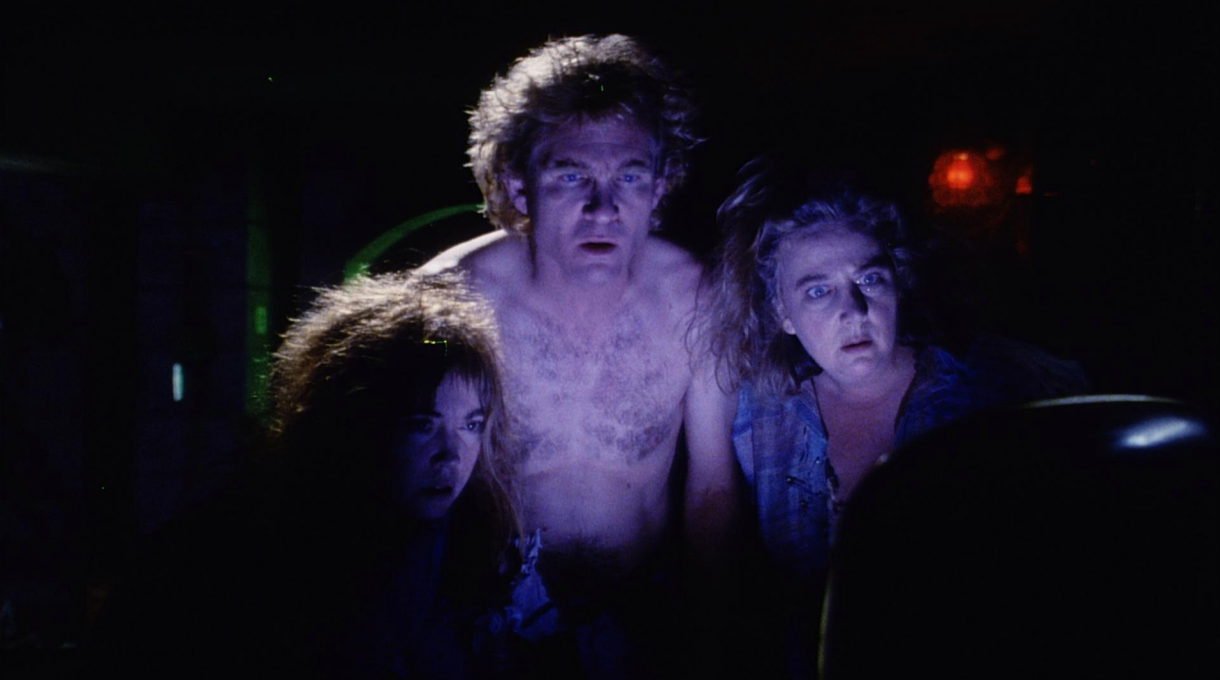Written by Mackenzie Stolp
Anaheim, California; November 22, 1966. Opening the film with the assassination of JFK, Shelf Life is an exploration of conspiracies, human naivete and the lengths we go to, to protect ourselves. Two doom-prepper parents for their children into an underground bunker at the ‘apparent’ evidence of ‘the end of the world’ and we fast forward 30 years to see the results of spending that time underground, with only a television as a source of news and entertainment. Paul Bartel is known for camp classics such as Eating Raoul, and while Shelf Life reaches cult classic status, the overall viewing experience is a hard one.
If you can handle watching emotionally stunted adults bitch about each other for an hour and a half – go for it. While the characters lack of common sense and critical thinking is to be expected given their circumstances, it doesn’t give for an overall pleasurable viewing experience. Uncomfortable as it may be, however, this film is worth the watch.
Despite being pitched as a dark comedy, this just felt sad. You can’t help but pity each character, despite moments of funniness. Shelf Life is also musical, which is omitted from most descriptions of the film but is a crucial aspect. Through childish games and cryptic dialogue inherited from extensive TV viewing, Shelf Life plays with music, singing and spoken poetry to create an assortment of melodic moments that can only be created in this film and set-up: grown adults entertaining themselves as children. From a game about Egyptians to delivering the story on their parent’s death, the sung moments in the film.
O-Lan Jones is a gem, and the sound-out in this film. Her teeth, as always, are iconic and her performance beautiful. In one scene we see her crying to ‘Tammy’ by Debbie Reynolds, a perfectly great response to being locked in a bunker for 30 years and is one of the only moments our characters show they are affected by their situation, or at least that the games they create cannot distract their true hopelessness forever.
As life should be, television serves as the source of all information, entertainment, and motivation. The siblings’ games are motivated by their television viewing, often based on news events or television trends. Between their games, they bicker and compete for each other’s recognition. Ah, that relatable feeling of despising someone yet still pining for their attention. This is commonly seen within siblings yet jarring to see in adults. The intention of the film is to play with adults acting like children, but without a clear narrative or climax Shelf Life does not live up to its potential.
Overall, this film has redeeming qualities, a fun concept with an idea not commonly seen, and a great exploration of development. However, it is lucky that the film is only an hour and 20 minutes long because there is only so much one person can handle.
Matchbox Cine is showing the never-released film, with brand new descriptive subtitles and audio description here from August 27 to August 29 2021.


